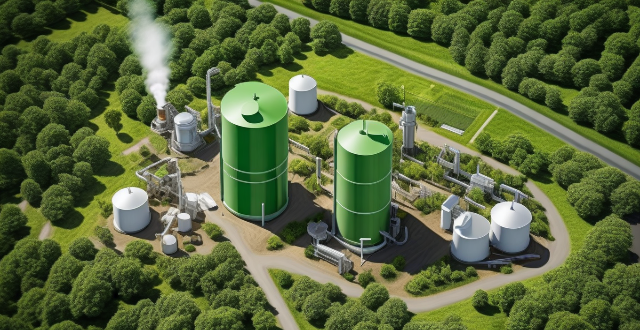Reducing greenhouse gas emissions is essential for mitigating climate change but has economic implications. The shift to renewable energy requires initial investments but can create jobs and reduce reliance on fossil fuels. It fosters innovation and green jobs but may impact fossil fuel industries negatively. Regulatory changes like carbon pricing and compliance standards can increase operational costs for businesses. Globally, it affects market dynamics and trade, with potential for carbon leakage and competitive advantages in green technology markets. Consumer behavior might shift towards sustainable consumption and energy efficiency. Social welfare considerations include equity concerns and potential health benefits from reduced air pollution. Balancing environmental goals with economic factors is key to a successful transition to a low-carbon economy.

Economic Implications of Reducing Greenhouse Gas Emissions
Reducing greenhouse gas emissions is a critical step towards mitigating the impacts of climate change. However, this transition comes with significant economic implications that need to be carefully considered. Here are some key points to consider:
1. Shift in Energy Production and Consumption
- Renewable Energy Investments: The move towards renewable energy sources like wind, solar, and hydroelectric power requires substantial initial investments in infrastructure. This can lead to short-term economic costs but long-term benefits through job creation and reduced reliance on fossil fuels.
- Fossil Fuel Industry Impact: Reducing greenhouse gas emissions may negatively affect industries heavily reliant on fossil fuels, leading to job losses and economic downturns in regions dependent on these industries.
2. Innovation and New Opportunities
- Technological Advancements: The push for cleaner technologies fosters innovation, driving research and development in areas like electric vehicles, battery storage, and smart grids. These advancements can create new industries and economic opportunities.
- Green Jobs: As the focus shifts towards sustainability, there will be an increased demand for professionals in fields related to renewable energy, energy efficiency, and environmental management.
3. Regulatory Changes and Compliance Costs
- Carbon Pricing: Mechanisms like carbon taxes or cap-and-trade systems aim to make polluting activities more expensive, encouraging businesses to reduce emissions. This can increase operational costs for companies but also incentivize investment in cleaner technologies.
- Compliance Standards: Stricter environmental regulations may lead to additional compliance costs for businesses, especially those undergoing rapid changes to meet emission reduction targets.
4. Market Dynamics and Global Trade
- Carbon Leakage: If certain countries implement stricter emission reduction policies than others, it could lead to industries relocating to regions with laxer regulations, potentially offsetting global emission reduction efforts.
- International Trade: Countries that successfully transition to low-carbon economies may gain a competitive edge in emerging markets for green technologies and services.
5. Consumer Behavior
- Sustainable Consumption: As awareness about climate change grows, consumers may prefer products and services from companies committed to reducing their carbon footprint. This can drive demand for sustainable goods and influence corporate strategies.
- Energy Efficiency: Higher energy prices due to carbon pricing might encourage consumers to adopt more energy-efficient practices at home and work, leading to cost savings in the long run.
6. Social Welfare Considerations
- Equity Concerns: Policies aimed at reducing greenhouse gas emissions should consider social welfare, ensuring that the transition does not disproportionately affect vulnerable populations or exacerbate income inequality.
- Health Benefits: Reductions in air pollution associated with decreased reliance on fossil fuels can lead to significant public health improvements, reducing healthcare costs and increasing productivity.
In conclusion, while reducing greenhouse gas emissions presents challenges, it also offers opportunities for economic growth, innovation, and job creation. A thoughtful approach that balances environmental goals with economic considerations is crucial for a successful transition to a low-carbon economy.